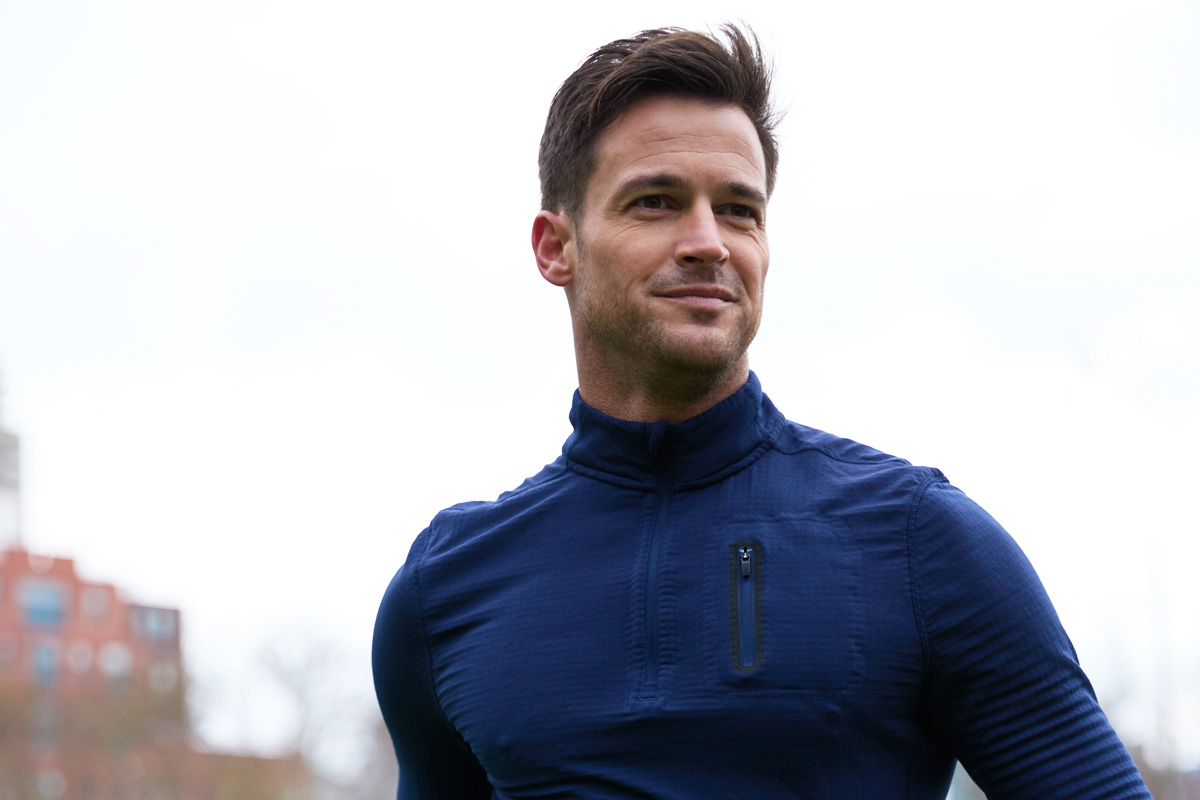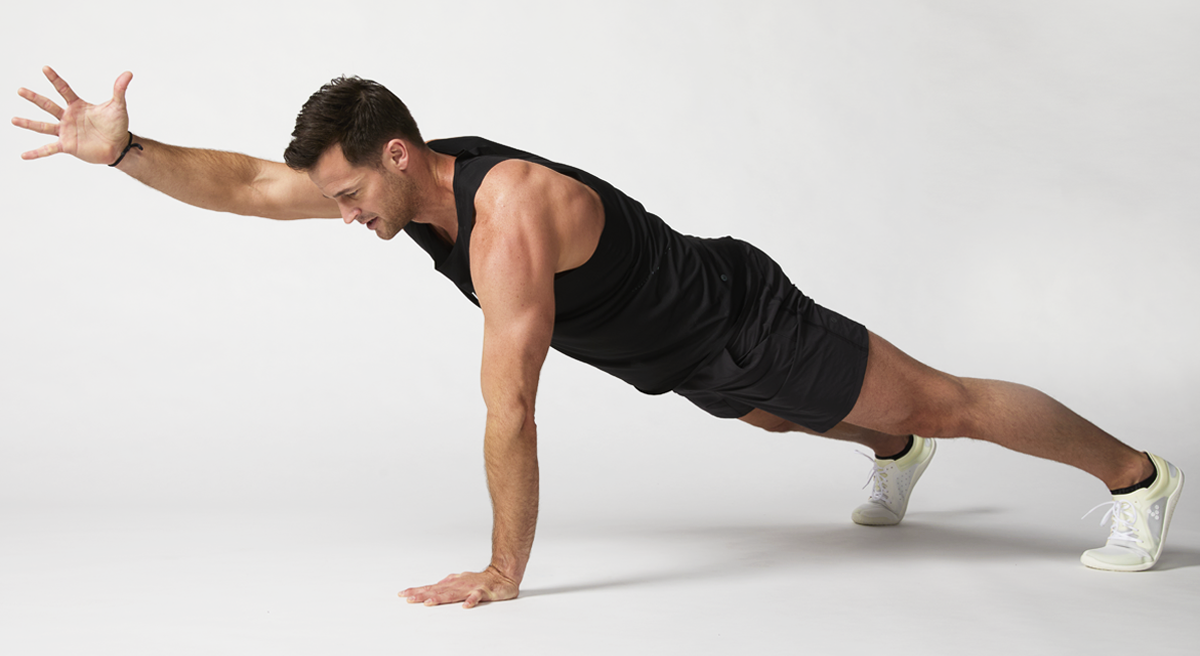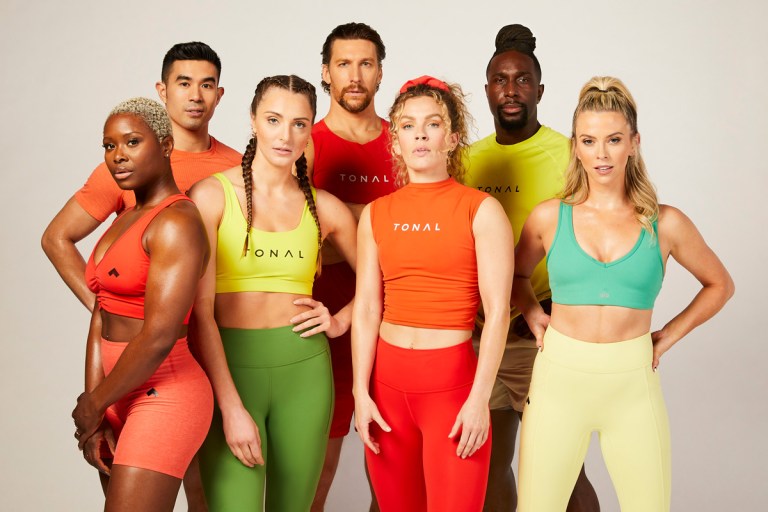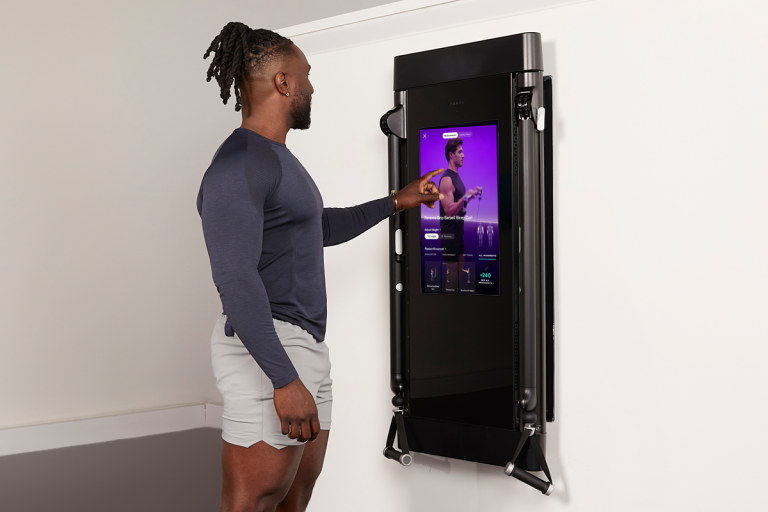Lance Parker’s Stoic Approach to Training Will Transform Your Body and Mind
Achieving your goals is in your control. This former-pro-athlete-turned-coach will help you get there.

Oklahoma-born trainer Lance Parker lives by a code that influences the way he works, the way he trains, the way he communicates, and the way he coaches: “Focus on the things you can control. Ignore the rest,” he says.
This is a Stoicism philosophy called the dichotomy of control. It suggests that if you focus only on what’s within your power, you will feel more responsible for whatever happens in your life. It also explains why Parker, a professional soccer player who was benched after returning from an injury, busted into his coach’s office one day and asked what he could do to reclaim his spot on the field.
His coaches challenged him to gain weight so he could become a more physical goalkeeper. Lance aced his nutrition plan and packed on 10 pounds of lean body mass in the next 10 days. He returned to his starting role two weeks later. “I learned a lot about my body,” he says. “That was quite an eye-opener.”
After retiring from soccer in 2015, Lance launched his fitness business, Parker Peak Performance, to help athletes optimize their performance like he did. From there, he became an instructor for Lululemon Studio (formerly Mirror), and ultimately a coach at Tonal.
Here, Lance opens up about life as a former pro turned endurance athlete, what inspires him, and what you can expect when you tap into his Tonal classes.

What do you love most about training and coaching?
If you have a goal, and I can help you achieve it or enhance your life in some way, it’s just very rewarding. It allows me opportunities to problem solve. I love to utilize the knowledge that I have been acquiring to try to figure out what needs to happen, when it needs to happen, and how.
What’s your vibe as a coach?
I’m not super rah-rah. I’m not a cheerleader. I like to have a calming presence, even in higher-intensity classes. I try to educate you on what, how, and why you’re doing it, because my job as your coach is to help you evolve. I want to educate you to help build self-efficacy which will, in turn, develop a deeper sense of autonomy and the ability to do the work on your own.
Why should we train with you?
If the coach-athlete relationship were a movie or a book, the athlete is the hero of the story. It’s all about them. I’m the supporting role. I’m the guide who has been there before, who has been on this journey, and now I’m trying to help guide you to do the same thing.
I’m also a big data geek. I use objective data to make my decisions. But sometimes it’s actually not all objective from the viewpoint of the athlete. Yes, you may lose a few pounds or be able to get a stronger bench press. But a lot of times, it’s the subjective changes that matter—like gaining more confidence, smiling more, enjoying your life more, and having a better connection with the community around you. Those little things are really powerful, too.
How has your life as an athlete influenced how you coach?
Being part of a team teaches you how to work with other people. Learning to competently communicate is a very important skill. Being a goalkeeper, it’s my job to communicate with everybody on the field, and I think I became really good at that. It taught me to understand how to give and receive information in a manner best suited to the person I’m communicating with. I try to coach people the way I enjoyed being coached. It really all comes back around to being able to see the human being that you’re working with and catering to them.

What are you interested in outside of training?
Anything where I get to be outside. I’m actually currently at a small place upstate, and I’m cultivating land, and clearing trees. I like tending to the land, working with my hands and building things while being outdoors. It becomes meditative for me and helps me recharge. That really refills my cup.
What does strength mean to you?
Strength is having the capacity to overcome whatever stressor you’re facing. Whether that’s the weight on the barbell, or staying up an extra 30 minutes to spend time with your partner and kids when you’re extremely tired, or that hard thing at work that’s out of your control–strength is the ability to overcome.


